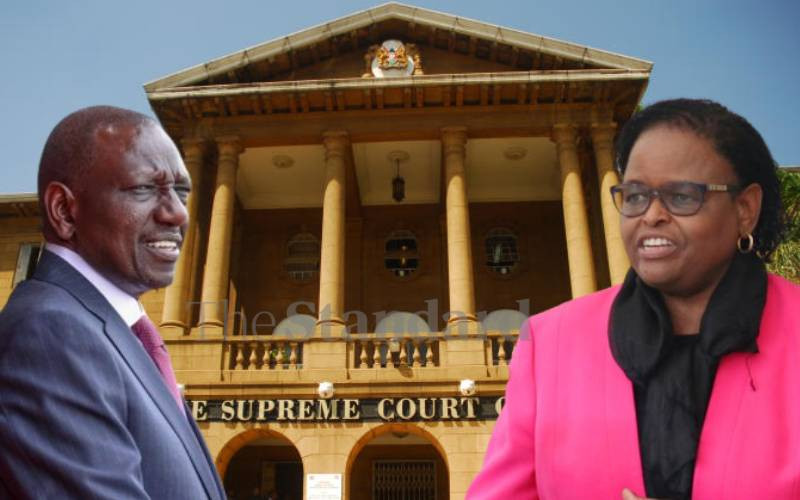×
The Standard e-Paper
Fearless, Trusted News

The honeymoon for the once-rosy relationship between President William Ruto and the Judiciary is waning. The novelty has worn thin, and indeed rubber has begun to meet the road for the Executive and the courts.
With the war between the two arms gathering tempo, the question is who will blink first between the Executive who has the yam, and the Judiciary who has the knife.